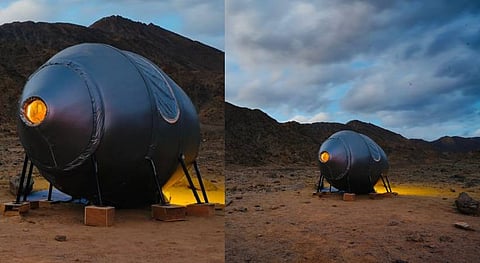
- Home
- Live Blog
- Breaking News
- Top Headlines
- Cities
- NE News
- Sentinel Media
- Sports
- Education
- Jobs

New Delhi: The Indian Space Research Organization (ISRO) on Friday announced the launch of its first analog space mission, to study the challenges of extraterrestrial conditions that will help in future space missions.
The mission, which includes a compact, inflatable habitat named Hab-1 will simulate life in an interplanetary habitat. It is being held in Leh, in Ladakh.
Even as India plans to launch several space missions, the new mission will help understand the challenges that future astronauts may encounter on missions beyond Earth. “India’s first analog space mission kicks off in Leh!” ISRO said in a post on X.
“This mission will simulate life in an interplanetary habitat to tackle the challenges of a base station beyond Earth,” the space agency added. Hab-1 is equipped with essentials like a hydroponics farm, kitchen, and sanitation facilities. It provides a self-sustaining environment, offering valuable data as India is planning long-duration space missions to the Moon, Mars, and beyond.
The mission is a collaborative effort by the Human Spaceflight Centre, ISRO, AAKA Space Studio, University of Ladakh, IIT Bombay, and is supported by the Ladakh Autonomous Hill Development Council.
Ladakh was chosen as the place for the mission due to its unique geological characteristics that closely resemble Martian and lunar landscapes.
Its cold, arid conditions and high altitude will provide an ideal environment for testing technologies and strategies necessary for long-duration space missions.
During the mission, the scientists will test new technologies, robotic equipment, vehicles, habitats, and communications. They will also seek to understand power generation, mobility, infrastructure, and storage during the analog mission. (IANS)
Also Read: ‘EC’s goal is to strip itself of the last vestiges of neutrality’: Jairam Ramesh
Also Watch: